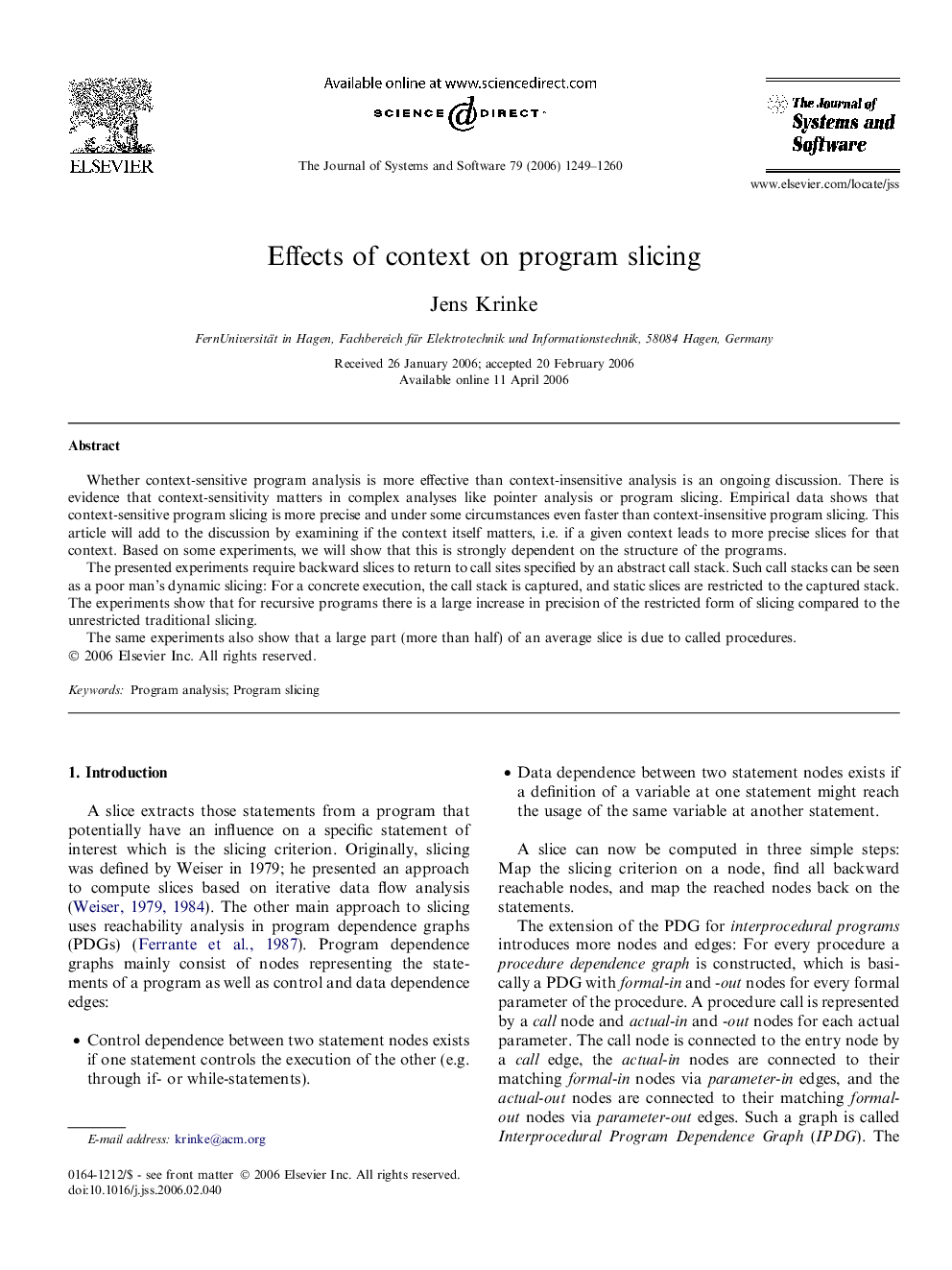| Article ID | Journal | Published Year | Pages | File Type |
|---|---|---|---|---|
| 494229 | Journal of Systems and Software | 2006 | 12 Pages |
Whether context-sensitive program analysis is more effective than context-insensitive analysis is an ongoing discussion. There is evidence that context-sensitivity matters in complex analyses like pointer analysis or program slicing. Empirical data shows that context-sensitive program slicing is more precise and under some circumstances even faster than context-insensitive program slicing. This article will add to the discussion by examining if the context itself matters, i.e. if a given context leads to more precise slices for that context. Based on some experiments, we will show that this is strongly dependent on the structure of the programs.The presented experiments require backward slices to return to call sites specified by an abstract call stack. Such call stacks can be seen as a poor man’s dynamic slicing: For a concrete execution, the call stack is captured, and static slices are restricted to the captured stack. The experiments show that for recursive programs there is a large increase in precision of the restricted form of slicing compared to the unrestricted traditional slicing.The same experiments also show that a large part (more than half) of an average slice is due to called procedures.
